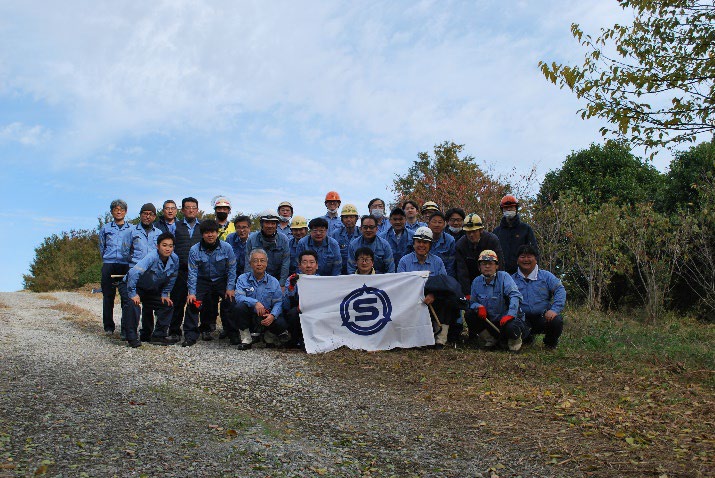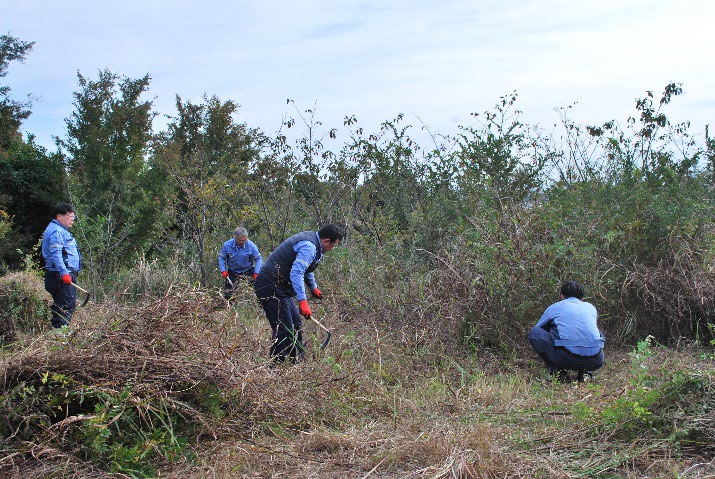Environmental policy
Environmental philosophy
The Osaka Steel Group contributes to society by actively working to reduce environmental impacts and preserve the global environment through our business activities of recycling steel scrap into steel products.
Basic policy
Climate change risks and opportunities and strategy to address them
The Osaka Steel Group predicts the effects of climate change on its business and prepares appropriately for relevant risks as part of its initiatives to adapt to climate change, and at the same time, the Group promotes efforts to seize business opportunities.
The Group’s goal to reduce CO2 emissions
The Osaka Steel Group, which aims to reduce total CO2 emissions by 46% compared to the 2013 level by 2030 and attain carbon neutrality by 2050, will exert its full strength to realize the vision.
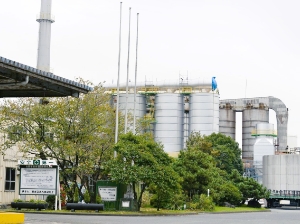
To achieve carbon neutrality
(1)Promotion of energy conservation
(2)Reduction of CO2 emissions through the use of renewable energy
(3)Use of CO2 capture, absorption, and storage technology and utilization of carbon offsetting
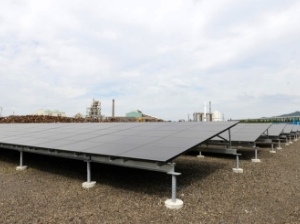
The Group’s energy conservation initiatives
(1)CO2 emissions
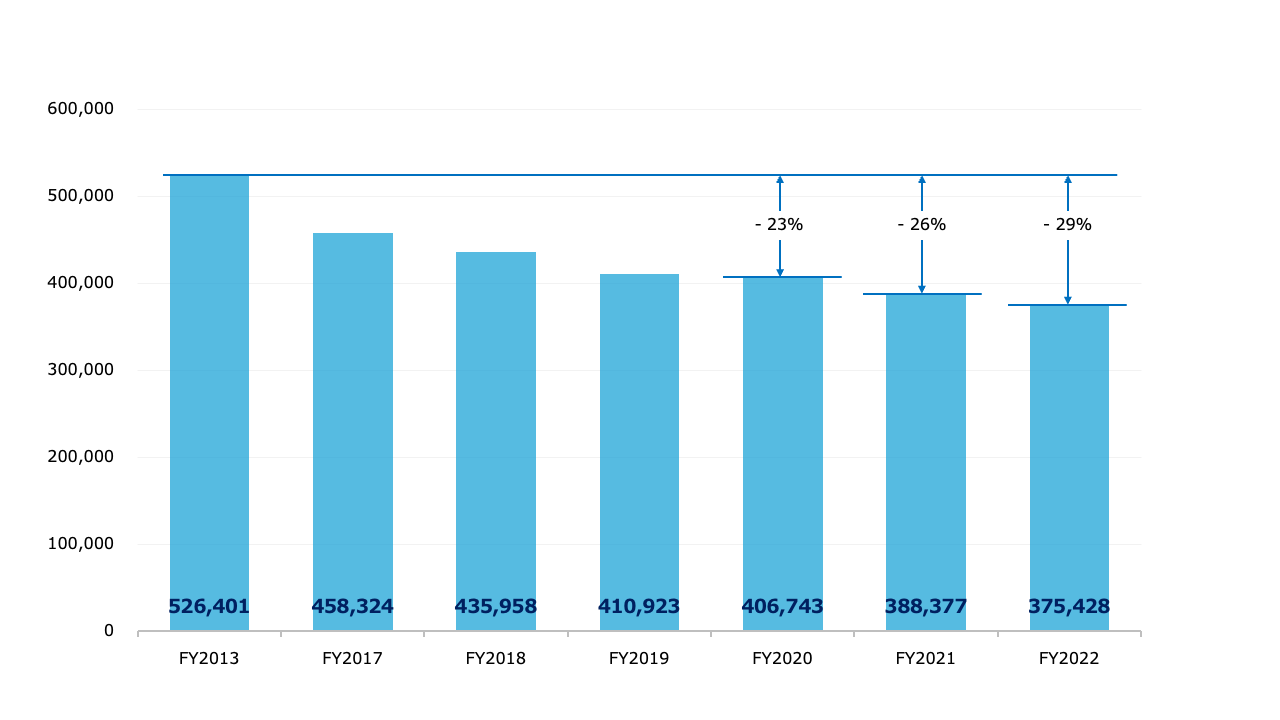
(Unit: t-CO2)
(2)Energy consumption
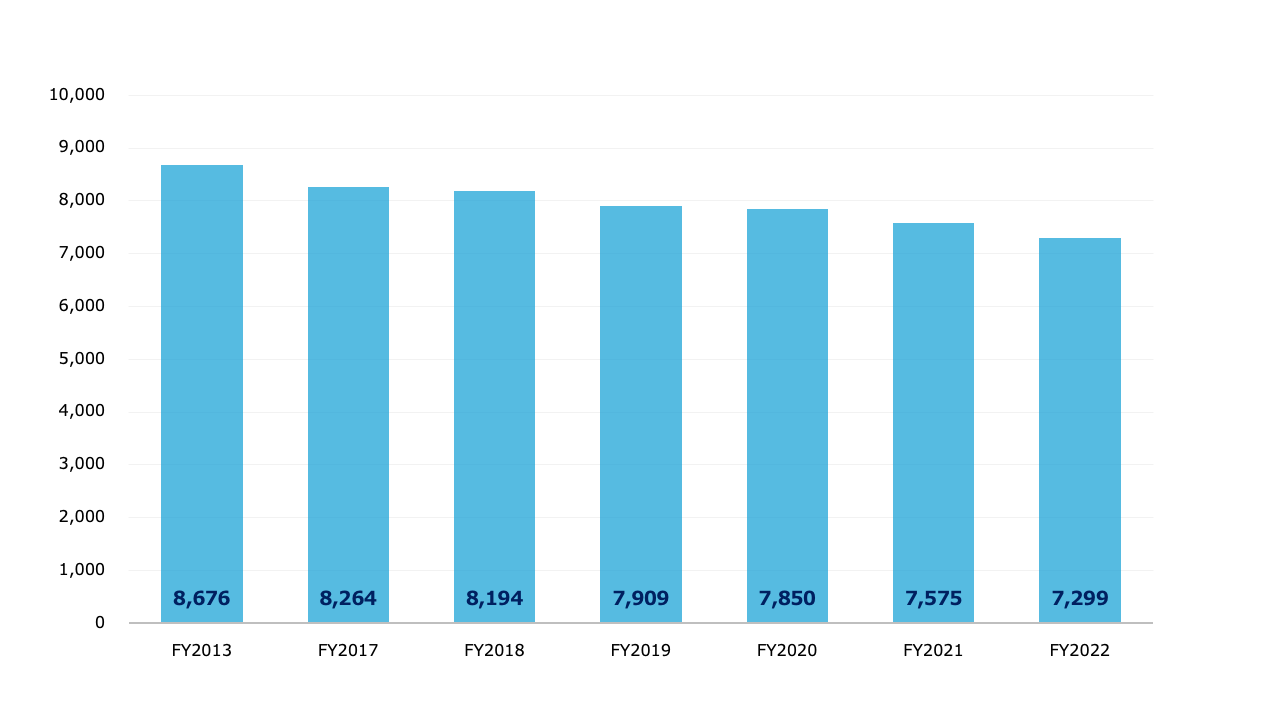
(Unit: TJ)
Contribution through the recycling of iron resources
Iron is an important material that is indispensable to today’s society. Excellent in terms of cost and production, it also supports our lives in various ways. At the end of its use, steel is sorted and captured as scrap. After scrap is melted and recycled in an electric arc furnace (EAF), recycled steel is sent back to our society. Osaka Steel is an EAF steelmaker, and EAF steelmakers engaged in the recycling of iron using this CO2-free ironmaking process are gaining importance. Osaka Steel will contribute to the creation of a sustainable society through the very business of iron resource recycling.
Promotion of internal zero emission
Steel slags, dust, and other byproducts are generated in the ironmaking process, and in FY2022, some 90,000 tons of byproducts were generated when we produced about 800,000 tons of crude steel. Osaka Steel strives to reduce byproducts mainly by recycling most of them both internally and externally, and maintains a high recycling rate currently at approximately 90% or more. We will continue to promote efforts to achieve internal zero emission.
Acquisition of EcoLeaf environmental label
The Osaka Steel Group has acquired the EcoLeaf environmental label, which is certified by the Sustainable Management Promotion Organization (SuMPO), for six of its products such as angles. EcoLeaf is one of the Environmental Product Declaration (EPD) certification programs that aim to disclose environmental information on the entire life cycle of products (from resource extraction, manufacturing, and distribution to usage, disposal, and recycling) in quantitative terms using the life cycle assessment (LCA) method. This enables customers to use the label as evidence for judging when quantitatively and objectively evaluating the environmental impacts of products they use and purchasing environmentally conscious products. If customers use a certain amount or more of products with an EcoLeaf environmental label for their buildings, they can obtain additional points when applying for an LEED certification (America’s international performance evaluation system aimed at assessing the environment of buildings and cities). We expect to contribute greatly to customers who strive to acquire an LEED certification.
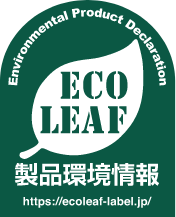
Registration number
Details of disclosure data on the EcoLeaf environmental label can be viewed on the website Sustainable Management Promotion Organization (SuMPO)
Acquisition of SIRIM ECO-LABELLING CERTIFICATION
We have obtained SIRIM ECO-LABELLING CERTIFICATION from SIRIM QAS International, Malaysia’s leading testing, inspection and certification body, for two of our products, Equal angles and Channels.
Furthermore, PT.KRAKATAU OSAKA STEEL, a subsidiary, has also obtained the certification for Equal
This label which is Malaysia’s official national Type I environmental label (based on ISO 14024) gives the products a competitive edge over similar products in a market that is becoming environmental priority. Certified green products and services are adopted for green procurement by government and private sector, green incentives such as green investment tax credits and green income tax exemptions, and related green technology initiatives.
In addition, we are the first company among integrated steelworks outside of Malaysia to receive this label.
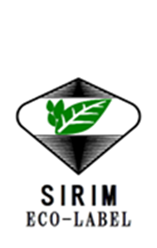
Participation in the “Kyosei-no-Mori (Symbiotic Forest) Creation Project”
As part of our commitment to the SDGs and social initiatives related to environmental conservation, Osaka Steel has joined the “Sakai 7-3 District Kyosei-no-Mori (Symbiotic Forest) Creation Project,” which is promoted by Osaka Prefecture. We signed an agreement with the prefecture in September 2024.
The “Sakai 7-3 District Kyosei-no-Mori (Symbiotic Forest) Creation Project” aims to create natural environments and enhance biodiversity by developing forested and biotope spaces across approximately 100 hectares of the Sakai 7-3 District, a former industrial waste disposal site in Sakai City, Osaka Prefecture. Osaka Steel has named its designated area “Osaka Steel Sakai Forest” and is actively engaged in this initiative.
We will keep promoting environmental and biodiversity conservation while collaborating with society to achieve a sustainable future.
